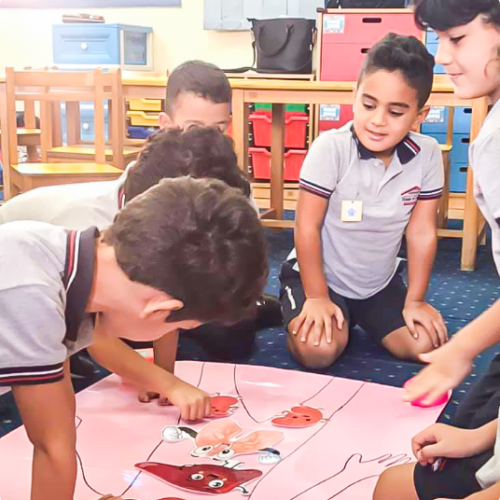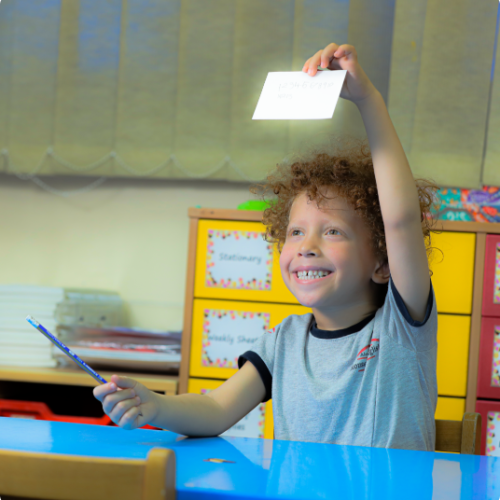
Foundation Stage - F2
Phonics is a big part of Year 1. Your child will continue to expand on their knowledge of phonics and will probably surprise you with just how quickly they develop their reading. They will do 20 minutes of phonics learning each day, just like they did in Reception. These are fun, pacy sessions which involve games and tasks. They will learn tricky words, spelling rules and how to sound out and blend to aid them with their reading and writing.

They will probably be encouraged to ‘have a go’ at spelling when writing independently, by phonetically sounding out words. Their teacher may well ask them to ‘write it like it sounds’ and, as the weeks go by, they will learn the correct sounds to replace those guesses. Your child will be learning through a topic this year, which makes lessons relevant and exciting. They will learn English through all sorts of wonderful stories and they will also act out stories that may be familiar to you at home.
They will plan and write their own wonderful creative stories, design posters and leaflets. They will learn to write in sentences and to use exciting language — all while improving their handwriting. You will probably be amazed at their development on your first parents’ evening! Maths lessons this year tend to be enjoyable, with plenty of hands-on activities. Your child will count with objects and work in groups to explore shapes and pattern.

They will learn to use a 100 square to help with their adding and subtracting. Number bonds will also be reinforced. They will learn to count forwards, backwards, in 2s, 5s, 10s, and they will double and halve. They will do Maths inside and outdoors and, because we work in a very cross-curricular way in F2, he/she will be talking about Maths during other subjects, for example; while measuring ingredients for cooking (DT), drawing tables to record experiments in science or drawing maps in geography.
Pupils begin to learn the French language by using a range of vocabulary and structures that is taught through pictures. They are encouraged to develop their language skills through songs and rhymes.
Preparing the students for Year 1, the Arabic lessons in F2 reinforce long sounds and special sounds to help children learn the shapes of the letters and to associate sounds with these shapes by including a variety of writing activities, thus enabling children to master the core Arabic language skills of reading, listening, speaking and writing.
Pupils begin to learn the French language by using a range of vocabulary and structures that is taught through pictures. They are encouraged to develop their language skills through songs and rhymes.
Preparing the students for Year 1, the Arabic lessons in F2 reinforce long sounds and special sounds to help children learn the shapes of the letters and to associate sounds with these shapes by including a variety of writing activities, thus enabling children to master the core Arabic language skills of reading, listening, speaking and writing.

